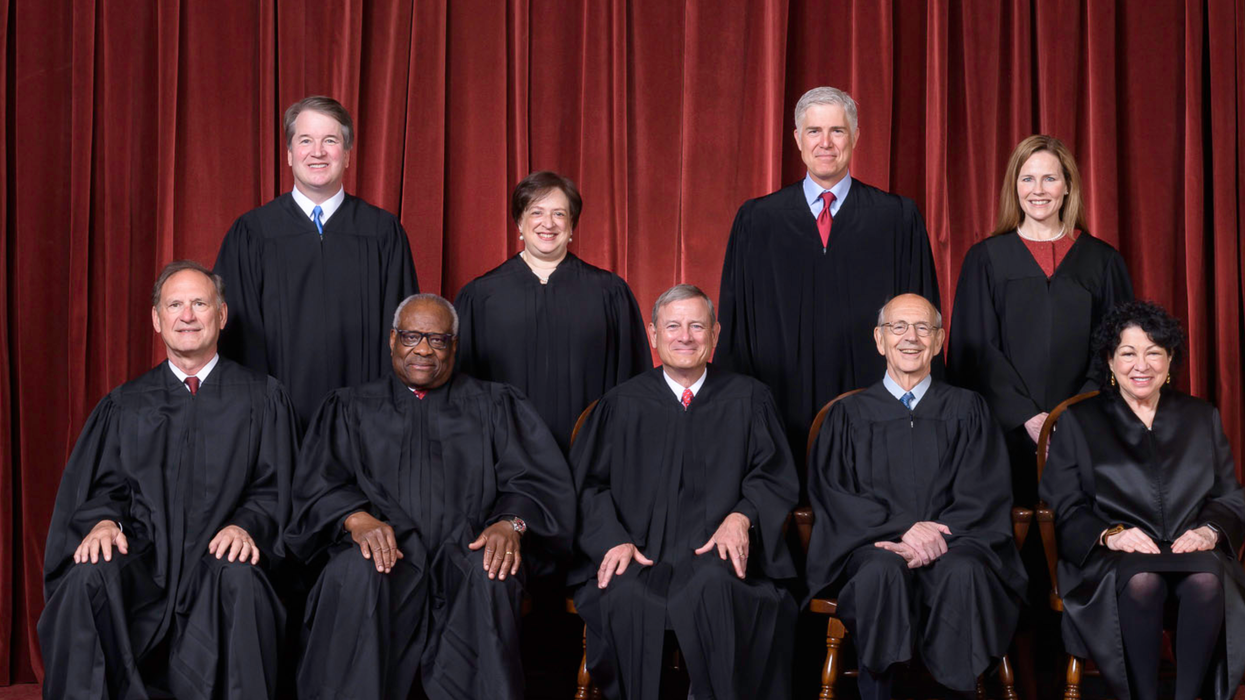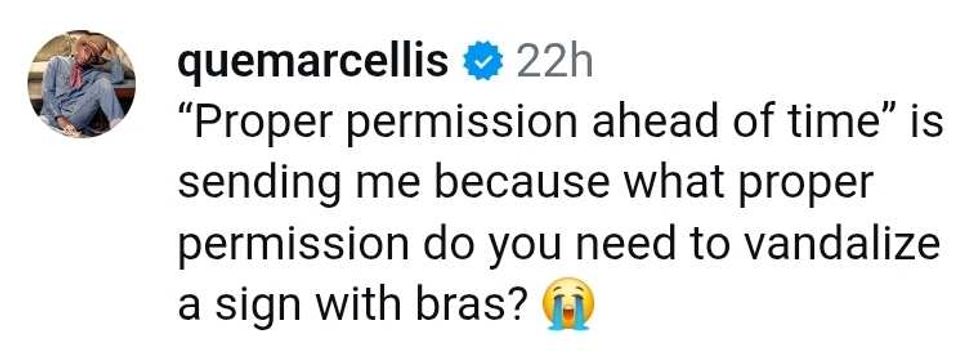Democrats are on a tear in courts across the country not seen since the trouncing the Trump campaign received in its post-election challenges, where the GOP lost all but one of the more than 60 cases filed. On Monday, the GOP suffered two more major defeats in emergency rulings by the U.S. Supreme Court which declined to hear challenges to two state supreme court rulings. In North Carolina and Pennsylvania, after multiple back-and-forths with GOP legislators, the courts were forced to step in and choose maps that were fundamentally fairer to Democratic voters. The GOP had sought review of those decision before the nation’s highest court, but they were rebuffed.
The North Carolina map selected by that state’s Supreme Court results in a likely partisan advantage in its House delegation for Republicans over Democrats of just 7-6, with one seat up for grabs. That is far better than the likely 10-4 advantage for the GOP proposed by the state legislature, which because of gerrymandering is dominated by Republican lawmakers. That shift alone is an important one for the math around control of Congress: Presently, the Democrats have a mere five seat advantage in the House of Representatives, so a shift that would give Democrats at least one if not two more seats in North Carolina is notable.
In Pennsylvania, the Supreme Court let stand a ruling by that state’s highest court. The state court had chosen chosen a plan called the “Carter Map” that Governor Tom Wolf, who had vetoed the GOP-submitted map, called “a fair map that will result in a congressional delegation mirroring the citizenry of Pennsylvania.” The Carter Map preserves “the cores and lines of current districts to the greatest extent possible, while accounting for changes in the Commonwealth’s population over the past decade,” according to lawyers working with voting rights attorney Mark Elias. Specifically, the map takes Pennsylvania’s 17 districts (the state lost one seat due to reapportionment from the 2020 census) and draws them to a likely 8-6 GOP advantage but with the three remaining seats, which are currently held by Democrats, left up for grabs. In a good year for Democrats, that could mean a 8-9 division in their favor, but in a sweep year for Republicans, it could mean an 11-6 delegation favoring the GOP.
Some rightfully credit the Democrats’ successes to Elias, who led the fight against the Trump campaign’s election challenges and has been actively suing to stop heavily gerrymandered maps and voter suppression laws around the country. But it also should be noted that, as with the false election claims, the challenged gerrymandered maps often run strongly afoul of the law—in these cases, state laws and constitutions—with the result that supreme courts in North Carolina, Pennsylvania, Wisconsin and Ohio have wound up siding with the Democrats.
The North Carolina case drew the most attention yesterday because lawyers for Republican legislators had pressed a dangerous legal theory, called the “independent state legislators claim,” which argues that state courts are actually forbidden from interpreting their own state constitutions when it comes to redistricting and federal elections. As odd as this sounds, it is based on language in the Electors Clause of the U.S. Constitution, which specifies that “state legislatures” have the power to appoint presidential electors “in the manner” they choose. The Elections Clause further gives them control over the “Times, Places and Manner” of holding elections. Under the theory being pushed, the word “legislature” excludes a role for state courts.
That theory proves too much, say Democrats, because it is precisely the role of the state supreme courts to interpret state law and the constitution and ensure that lawmakers do not abuse them. For example, in North Carolina there is a “free elections” clause in the state constitution with language that does not exist anywhere pin the U.S. Constitution. The state supreme court relied upon that clause as well as others in the state constitution to hold that the General Assembly must not “dilute any individual's vote on the basis of partisan affiliation.” That is a stronger protection than any federal law or U.S. Constitutional clause provides.
Further, in 2019 the U.S. Supreme Court already ruled in a controversial 5-4 decision that federal courts cannot step in to stop partisan gerrymandering in the states and that this is a matter best left to state law. It would be incredible if, just three years later after throwing up their hands and referring partisan map challenges to the states, they were to then rule that even state courts cannot stop partisan gerrymandering because of the Elections Clause.
Still, the U.S. Supreme Court very nearly went with the GOP’s argument. In their dissent, three members of the Court—Justices Gorsuch, Thomas and Alito—believed the case presented an “exceptionally important and recurring question of constitutional law" concerning “the extent of a state court's authority to reject rules adopted by a state legislature for use in conducting federal elections.” Justice Kavanaugh voted with the majority, saying the federal courts should not alter state election laws so close to an election (a principle that has been used cynically to deny relief for voters who are being disenfranchised by new laws), but he believed the Court should take up the matter in its normal docket. So it seems there are at least four votes that could recognize the “independent state legislatures claim” advanced by the GOP.
For now, however, the state courts appear free to continue to strike down unfair or heavily partisan maps based on state law. This is very good news to Democrats in Ohio and Wisconsin, where the final dispositions of their maps are still being litigated but where state supreme courts have signaled the GOP maps remain unacceptable.
For more political analysis, check out the Status Kuo newsletter.







 @complexpop/Instagram
@complexpop/Instagram  @complexpop/Instagram
@complexpop/Instagram @complexpop/Instagram
@complexpop/Instagram @complexpop/Instagram
@complexpop/Instagram @complexpop/Instagram
@complexpop/Instagram @complexpop/Instagram
@complexpop/Instagram @complexpop/Instagram
@complexpop/Instagram r/Fauxmoi/Reddit
r/Fauxmoi/Reddit r/Fauxmoi/Reddit
r/Fauxmoi/Reddit r/Fauxmoi/Reddit
r/Fauxmoi/Reddit r/Fauxmoi/Reddit
r/Fauxmoi/Reddit r/Fauxmoi/Reddit
r/Fauxmoi/Reddit r/Fauxmoi/Reddit
r/Fauxmoi/Reddit r/Fauxmoi/Reddit
r/Fauxmoi/Reddit r/Fauxmoi/Reddit
r/Fauxmoi/Reddit r/Fauxmoi/Reddit
r/Fauxmoi/Reddit r/Fauxmoi/Reddit
r/Fauxmoi/Reddit r/Fauxmoi/Reddit
r/Fauxmoi/Reddit r/Fauxmoi/Reddit
r/Fauxmoi/Reddit r/Fauxmoi/Reddit
r/Fauxmoi/Reddit r/Fauxmoi/Reddit
r/Fauxmoi/Reddit r/Fauxmoi/Reddit
r/Fauxmoi/Reddit r/Fauxmoi/Reddit
r/Fauxmoi/Reddit r/Fauxmoi/Reddit
r/Fauxmoi/Reddit r/Fauxmoi/Reddit
r/Fauxmoi/Reddit r/Fauxmoi/Reddit
r/Fauxmoi/Reddit r/Fauxmoi/Reddit
r/Fauxmoi/Reddit r/Fauxmoi/Reddit
r/Fauxmoi/Reddit r/Fauxmoi/Reddit
r/Fauxmoi/Reddit r/Fauxmoi/Reddit
r/Fauxmoi/Reddit r/Fauxmoi/Reddit
r/Fauxmoi/Reddit r/Fauxmoi/Reddit
r/Fauxmoi/Reddit







